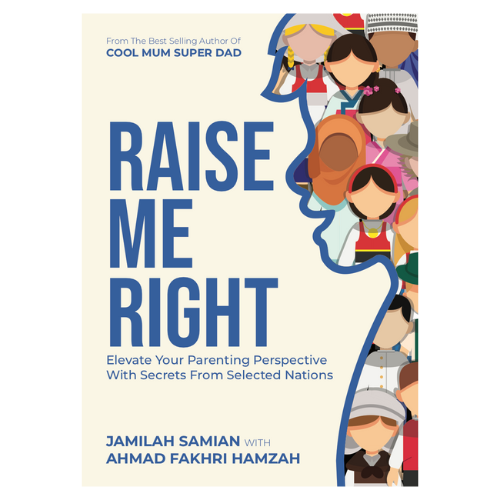Abbreviations:
JS = Jamilah Samian
KL = Kindaichi Lee

JS: What inspired you to write “DISCerning Parenting”?
KL: I have been working with families, youths and children since 2005 and had been exposed to diverse settings because I offer my services in churches as well as NGOs like Family Service Centers (Ministry of Social & Family Development) and HOPE Worldwide, Malaysia. One day it struck me: “Why not pen down some of these experiences?” Hence the birth of the idea of a handbook to empower parents.
JS: How does your book differ from other parenting books on the market?
KL: I have read and browsed through a number of parenting books. I have yet to come across a parenting book that is based on the framework of DISC. I believe this is the first.
JS: Can you explain the significance of the term “DISCerning” in the context of your book?
KL: Why DISCerning? Well, I am a strong believer that one of the traits or skill-set a parent should develop and invest in is DISCERNMENT. Thus, my pun of using DISCerning as part of the title of the book.
JS: How can parents use the DISC model to better understand and support their children?
KL: The DISC framework or model consists of only four behavioural styles: D (Dominance), I (Influence), S (Steadiness) and C (Conscientiousness). However, it might be hard for parents to understand these terms and what they represent. Hence I have adopted four birds as metaphors for this model: Eagle for “D”, Parrot for “I”, Dove for “S” and Owl for “C” (Thanks to the birds creator Merrick Rosenberg, who wrote my foreword).
The characteristics and behavioural types become alive through the birds, making it easy to remember, understand and apply. DISC helps us to better understand why we act and communicate the way we do, which will assist us to build better rapport and bond with our kids.

Kindaichi Lee at the official launch and book signing
of “DISCerning Parenting”.
JS: Can you provide an example of how a parent can apply the principles of “DISCerning Parenting” in a challenging situation?
KL: A good example will be that of an “I” (Parrot) mother and that of an “S” (Dove) child. Having a Parrot style, the mother will love to talk (almost non-stop) to engage the child. The child on the other hand, being a Dove, will be very sensitive and wants to choose the most appropriate words to say (in an effort not to hurt the mother or someone else). And since the conversation is one sided with the mother talking more, there is no space for the child to speak freely. In the book, there is a section for this Parrot mother to be aware of the need to listen more to her child, and also provide the space and time for the child to share his or her thoughts more easily. This strategy will provide better communication and bonding between this mother and her child.
JS: What are some common challenges parents face when trying to implement the DISC model, and how can they overcome them?
One challenge I foresee is that of parents using the book for the kids rather than for themselves. It is intended to be a Handbook for the parent on how to raise successful kids. Changes should come from the parents to set an example, rather than using the book as “Let’s see how I can change my kid”.
The book is not about how to address bad behaviours and does not offer discipline solutions or how to set boundaries. However, by understanding both your (parent’s) and your kid’s behavioural and learning style through the framework of DISC, one should be able to minimise such reactive (bad) behaviours in your kid.
JS: How has your approach to parenting changed since writing this book?
KL: I have used the DISC framework in working with some parents and helping them to better understand “the way the kids behave the way they do”. Much of the time, it is due to misunderstandings and miscommunication because parents and kids are operating at different styles. With better awareness, parent-child relationships have improved, giving space to more love and trust to raise the kids to be successful young people.
JS: How do you plan to continue contributing to the field of parenting education?
A parenting workshop based on DISC will be coming soon. The workshop will delve deeper to understand DISC and how to interpret the professional and personal DISC profiles correctly.
JS: What is one piece of advice you would give to parents who are struggling to connect with their children? How can parents stay motivated and positive during challenging times?
KL: I am convinced that all parents want the best for their children. However, children today are constantly distracted by social media, the “noise” that makes it difficult for us to connect with them in person. I am hopeful that the DISC framework can be an added tool for parents to adjust their communication style to bond with their children. It is like a guiding light to navigate through the “digital storms”.
JS: Any last word? How can readers purchase the book?
KL: To purchase the book, click this link.
To parents, I wish this book will find a special place not just in your homes but also in your hearts. I hope that the book will serve as a platform for me to work together with parents on their journey in parenthood.

Photo courtesy of Kindaichi Lee





